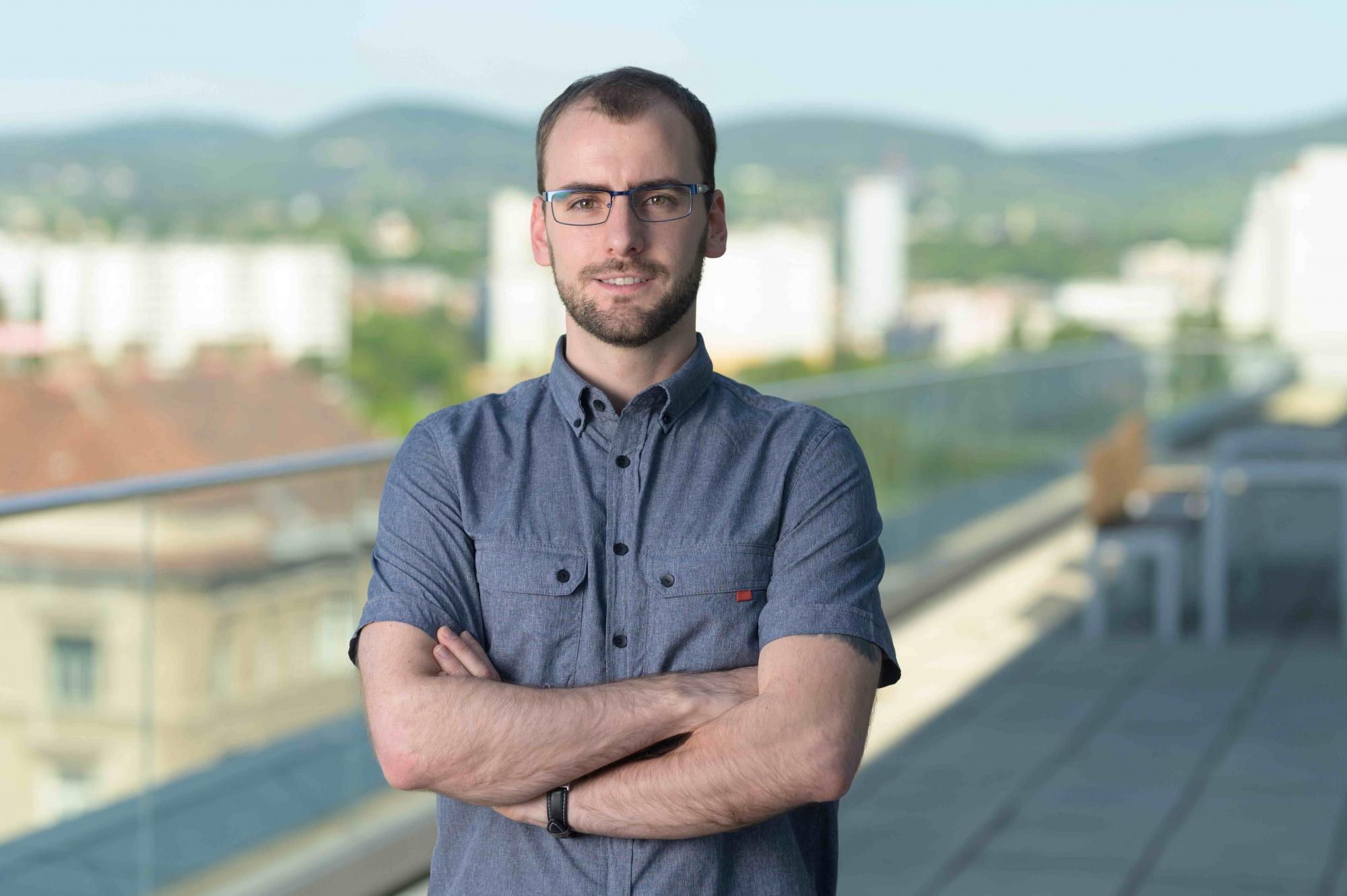Doctoral College with TU Vienna: UAS Technikum Wien Graduate on the Way to a Research Career

12 May, 2021
As one of 20 international participants, Dominik Widhalm is currently completing the first joint doctoral college between FH Technikum Wien and TU Wien. Here he reports on his experiences on the way to his dissertation.
The first joint doctoral program between FH Technikum Wien and the Faculty of Computer Science at TU Wien has been running since the winter semester of 2018. The two universities are thus enabling high-quality scientific training that also offers UAS graduates structurally anchored access to the doctorate. A total of 20 international students are currently participating in the pilot project in the thematic focus Resilient Embedded Systems. One of them is Dominik Widhalm, who has already completed his Bachelor in Electronics and his Master in Embedded Systems at the FHTW. He is now in his third year of working on his doctoral project as part of the program.
Widhalm was already part of the first group of applicants who started two and a half years ago as part of the cooperation project. “I was already interested in research topics at the UAS,” the doctoral student says about his motives for continuing with scientific research work in the form of a dissertation after completing his master’s degree. “But I also wanted to know: What is it like to study at a university? And: can a graduate of a university of applied sciences pass there? So in a way, it’s also a self-experiment,” Widhalm says with a smile.
New perspectives
In the meantime, two more cohorts have started in the doctoral program, bringing the total number of places to 20. After the application process, participants first complete a one-year introductory phase. During this, the doctoral students, who come from all over the world, are to be brought up to the same level professionally. “Among other things, I had to take the lectures on formal methods in computer science and discrete mathematics, which are considered particularly challenging,” Widhalm recounts. Looking back, however, he says he benefited greatly from the introductory phase. “I got a new perspective on certain topics during that year. I also had to learn during that time how to deal with more theoretical and abstract content than I was used to at UAS.” In this way, he says, he learned that it can sometimes be helpful to take a step back so as not to lose sight of the big picture. “That way, you can also find new approaches to solving problems.”
One doctorate, two universities
Dominik Widhalm is scientifically supervised by a member of staff from each of the universities involved (Karl Göschka for the FHTW, Wolfgang Kastner for the TU Vienna). Although he is formally completing his doctorate at the TU, he is employed at the FHTW for 30 hours per week as part of the program. Additional teaching at the UAS gives him the opportunity to earn as much as he would with a full-time position.
Especially in his first year of study, he says, he had a lot of contact with colleagues from countries such as Egypt, Canada, Pakistan, and Iran. The group supported each other in preparing for the exams, especially in the initial phase, and met again and again in private. “This was also interesting to learn more about the cultural background of the colleagues,” says Widhalm.



Professional exchange with international colleagues
Due to Corona, the doctoral student is currently working a lot from home on his dissertation project. Once a month, the doctoral students meet in a virtual seminar, in which ideas are discussed and the further development of their own research work is presented. As part of his dissertation project, Widhalm is working on the error behavior of sensor networks. These can be used, for example, in the agricultural sector to record environmental data. In particular, Widhalm is working on the development of a kind of artificial “immune system” that can automatically and self-learningly evaluate whether the data it collects is actually correct. In the home office, he was able to use equipment from the UAS for tests and also received the best possible support from his supervisors in other respects: “Both at the TU and at the UAS, everyone has always had an open ear when I have had a concern”. Because he made particularly intensive use of the time in the home office, Widhalm will probably even complete his research project a little earlier than planned. This will give him more time to write the actual doctoral thesis and prepare for his defence.
Pilot project with exemplary effect
In the past two and a half years, he has become well acquainted with the differences between the UAS and the TU, says Widhalm: “Both have different objectives, but they pursue them in the best possible way. The University of Applied Sciences is more practice-oriented and trains highly qualified specialists for the economy, while the Technical University has a stronger academic-theoretical focus. In any case, he is certain that he wants to continue working in research after completing his doctorate. And he hopes that his degree will also serve as a role model and thus contribute to making it easier for UAS graduates to start a doctorate at a university in the future: “Because we can keep up just as well as others!